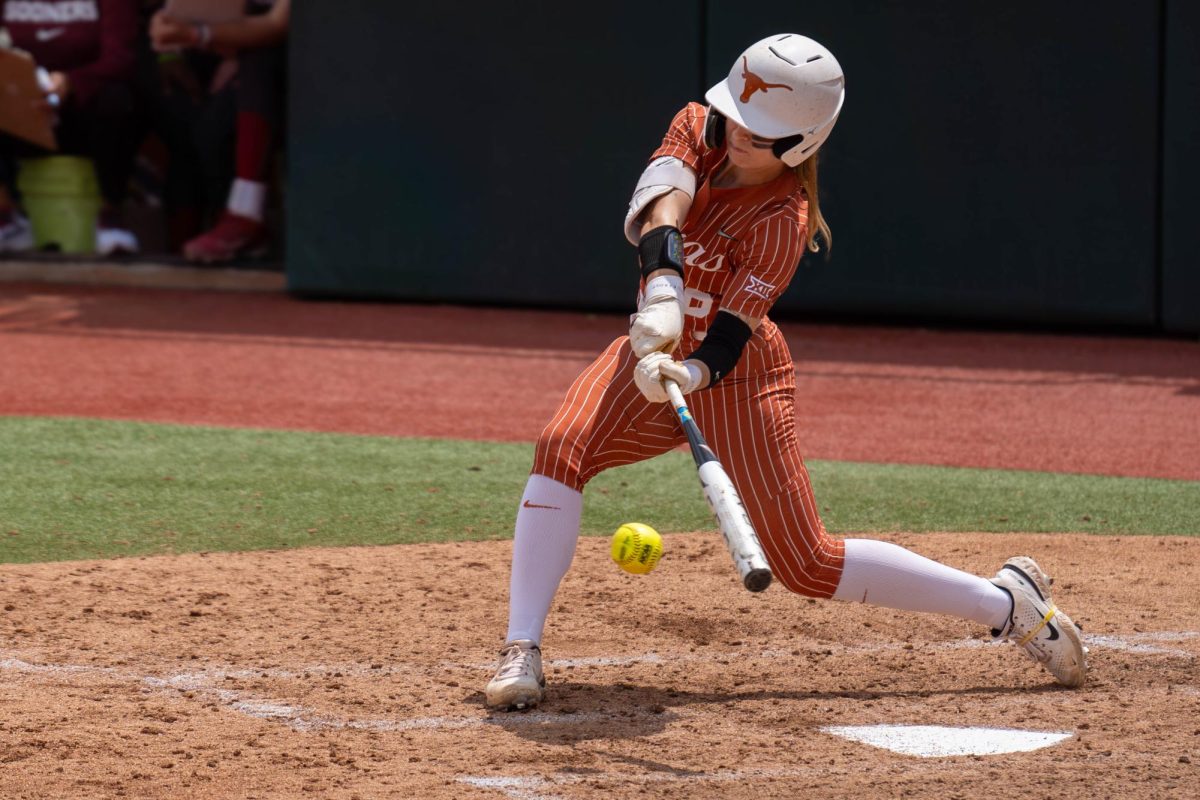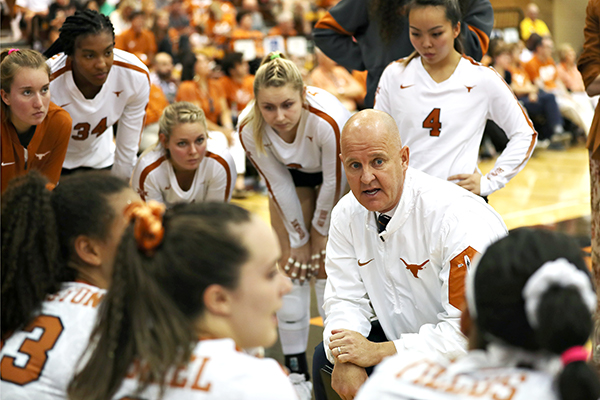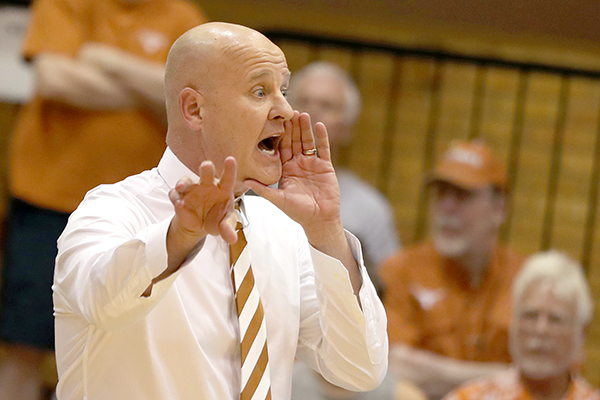The Longhorns’ serves can be loosely compared to Frodo’s ring in “The Lord of the Rings”: While its powers can be successfully leveraged against opponents, it can also have a corrupting influence on the team.
Texas’ serving ability has been its greatest strength and greatest weakness depending on the situation. The team leads the Big 12 with 1.4 aces per set and is 9-1 when it tallies more aces than its opponent.
At the same time, the Longhorns make 89 percent of their serves in, which is behind other top Big 12 teams including Nebraska, Iowa State and Oklahoma, that have percentages from 91 to 94 percent. Service errors proved to be costly in both of the team’s Big 12 losses to Texas A&M and the Cornhuskers.
The trade-off is not something head coach Jerritt Elliott is willing to accept but said it was not a panic-worthy problem.
“We need to improve our service errors,” Elliott said. “It’s something we’ve been practicing on. We have standards in our gym. As we’ve improved our side-out game and our other games, this is the game that has kind of gone the other way.”
At the crux of the dilemma is the jump serve, a high-risk-high-return first move. The team’s most prominent jump server is hard-hitting senior outside hitter Juliann Faucette. Faucette has notched almost a quarter of the Longhorns’ service aces with 20 for the year and boasts a .33 aces per set mark, which is second in the Big 12. Her seven aces against TCU to open the season is still the highest clip among all players in the conference this year. Consequently, Faucette also has the highest number of service errors on the team with 37.
After the loss to Nebraska, Elliott has prioritized getting the ball in play rather than trying to score on the serve, thus moving the team toward the more typical float serve and the team has not lost a match since.
Even Faucette has opted for a jump-float serve rather than her high-speed topspin jump serve.
“It’s really going along with what the strategy of the game is and what coach is looking for,” Faucette said. “In the past couple of games, we’ve been trying to be more consistent and the serve I’m doing now is more consistent, so we’re able to put more strings together and get more production in our defense.”
Trust in a greatly improved defense is likely the primary reasons for Elliott’s change in plan. With freshman libero Sarah Palmer settling into her new role and increasingly consistent backline play from the likes of Faucette, junior outside hitter Amber Roberson and sophomore utility player Sha’Dare McNeal, the team’s offense has benefitted from cleaner passes, sets and kills.
“Overall, this team needs to minimize its errors in every category possible to be successful,” Elliott said. “We’ve spent a lot of time in our serve-receive game and because of that our numbers have been really good.”
The float serve can also do its fair-share of damage. Freshman Hannah Allison is third behind Faucette in aces per set in the conference despite using the float serve from the beginning of the season. Senior Lauren Dickson, who transferred to Texas after an illustrious career at the University of Virginia, has played the role of serving specialist for the team. Dickson’s carefully-placed serves have netted her eight service aces on 94-percent accuracy.
Though the team seems to be moving toward lessening the impact of the One Ring, they have not quite shipped it to the fires of Mordor.
“I don’t know,” Faucette said on whether Longhorn fans will see her whizzing, dropping jump-serve again. “I’m still working on both and we’ll see what we need as a team.”
Faucette and the Longhorns look to keep their serves in play against Kansas tonight.




















